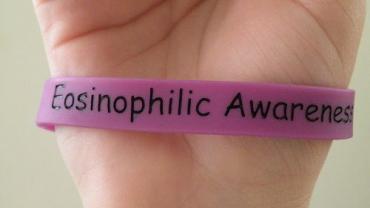
Recent research points to the discovery that environment plays a much larger role in eosinophilic esophagitis than genetics. Eosinophilic esophagitis is an inflammatory condition of the esophagus. This is a painful condition usually associated with food allergies where patients have difficulty swallowing due to stiffening of the esophagus.
Eosinophils are normal components of the blood. The problem arises when the body produces too many eosinophils usually due to an allergy or parasite and as a result they can cause a variety of conditions which are typically chronic inflammatory disorders of the gastrointestinal system.
Researchers at Cincinnati Children's Hospital Medical Center quantified the risk associated with genes and environment on familial clustering of eosinophilic esophagitis. They reviewed patient family lineage of a) patients with eosinophilic esophagitis and their first-degree relatives and b) patients with eosinophilic esophagitis and their identical or fraternal twin/triplets. By using these two distinct analyses they determined that 2.4% of siblings and 1.8% of first-degree relatives of patients with eosinophilic esophagitis also had eosinophilic esophagitis. The researchers also found that males (brothers and fathers) were more likely to have eosinophilic esophagitis than females (sisters and mothers). Twins had 20-40% risk of eosinophilic esophagitis depending upon whether they were identical or fraternal.
"The power of this study is the twin analysis" says Dr. Eileen Alexander one of the studies authors. "Both the twin and family analyses support that genetics contribute to eosinophilic esophagitis risk but the twin analysis revealed that the contribution of genetics was previously overestimated masking the stronger contribution of common household environment."
This very recently published study (September 22 Journal of Allergy and Clinical Immunology) is the first eosinophilic esophagitis heritability study to look at twins. This is a crucial step in separating the contribution of genetics from environment.
In eosinophilic esophagitis it is important to address any underlying GI dysfunction and assess food triggers. From a symptomatic standpoint deglycyrrhizinated licorice or DGL is soothing and healing to inflamed tissue. In addition digestive enzymes and proteolytic enzymes should be considered to help with any immune-mediated food sensitivities.